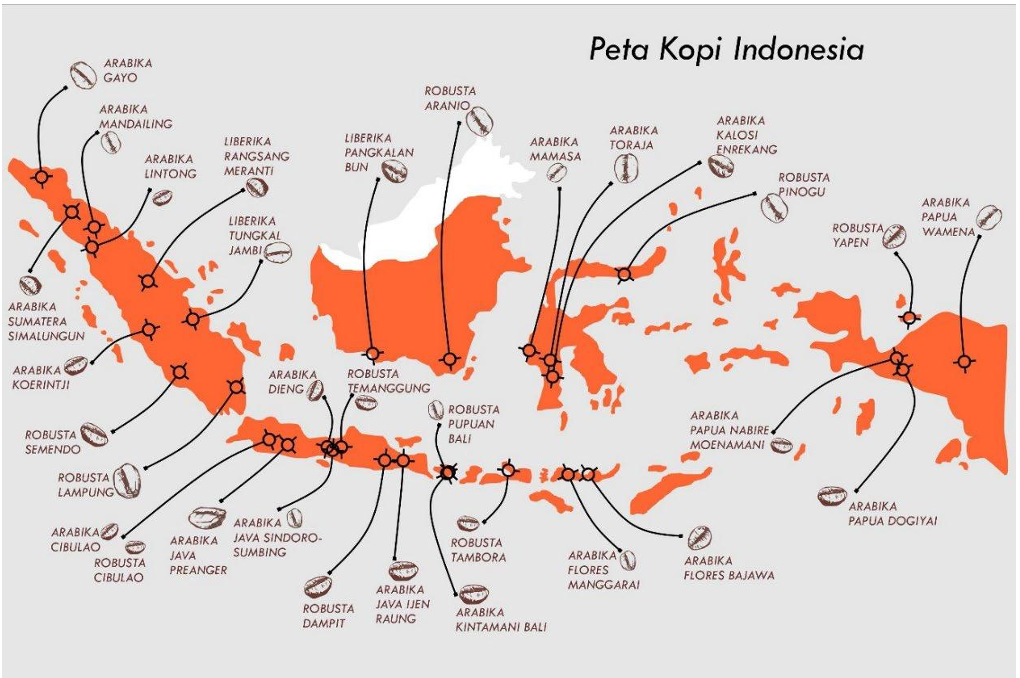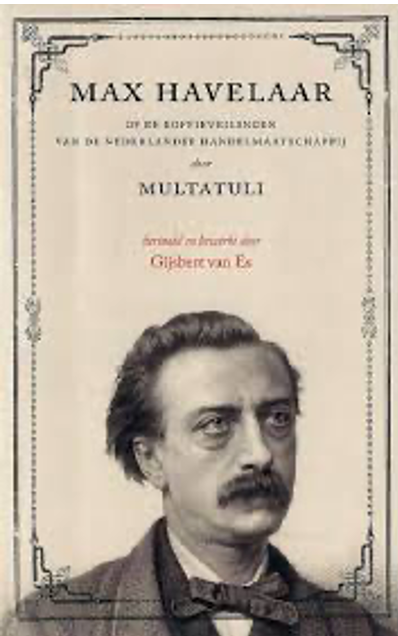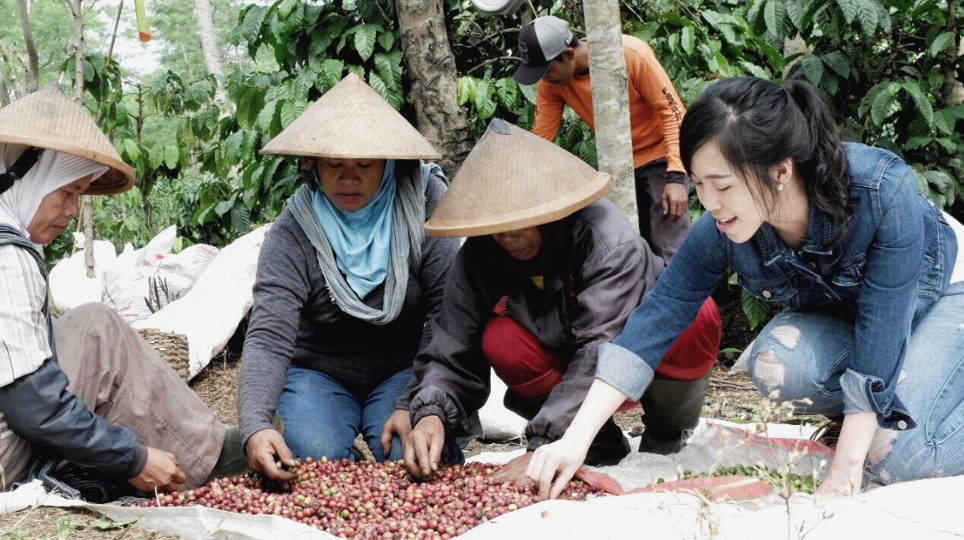In preparation for World of Coffee in Jakarta, did you know that Indonesian specialty coffee is on the rise?
While thousands of coffee professionals are preparing for the first-ever World of Coffee in a producing country, we spotlight one Indonesian woman, Evani Jesslyn, who’s been working for more than a decade to make the Indonesian coffee industry more equitable and sustainable in her efforts to promote specialty coffee.
Here are 10 things to know about coffee in Indonesia:
1. Coffee is a vital crop for Indonesia.
The country ranks as the second-largest coffee producer in Asia and the fourth globally. Indonesia is also a country that prides itself on being a consumer of its coffee.
2. Small-holder farmers depend on coffee.
The Indonesian coffee industry supports an estimated 1.8 million smallholder farmers, who cultivate 99% of Indonesia’ coffee.
3. Indonesian coffee includes several species of coffea.
These include coffea arabica, coffea canephora (robusta), and coffea liberica(in Indonesia, known as ‘liberika’).


4. Indonesia comprises 17,000+ islands, many of them producing coffee.
To name a few: islands producing Arabica and Robusta include Java, Sumatra, Toraja, Papua, Bali, Flores, and more. Islands producing Liberika include Kalimantan. Indonesia contributes one-third of the global supply or Robusta thanks to its fertile soil and favorable climate conditions.
5. “The book that killed colonialism” was set in 1850s Java.
Set in colonial Java, the novel Max Havelaar: Or the Coffee Auctions of a Dutch Trading Company sent shockwaves after its 1860 publication in the Netherlands. While it’s a challenging book to read in English translation, it’s an important book not only in the history of literature but in human rights literature.
Published under the pseudonym Multatuli – Latin, “I have suffered greatly” – the book was written by Eduard Douwes Dekker, a Dutch colonial officer who was working in the Dutch East Indies. He disguised his real identity, because he vividly portrays the atrocities perpetuated under Dutch colonialism in Java. His key audience was those in the Netherlands who were unaware of what was really going on in its colonies. While it’s a fictional story, the book is based on Dekker’s observations of abuses of power in the 1850s and his attempt to expose the hypocrisy of those who gained from an unjust, corrupt coffee trade. (If you want to read more about this book, check out the opinion piece referenced in the section below, written by an Indonesian writer who credits this book as that which "killed colonialism".)


6. Indonesia achieved Independence in 1945.
After almost 350 years of Dutch colonial rule, Indonesia claimed its independence in 1945. Still, ongoing challenges for small-holder farmers remain based on unjust structures of the coffee trade. For example, many farmers see minimal profits despite their labor-intensive role in producing high-quality coffee. There are many reasons for this, among them, a complex supply chain, as well as “market inefficiencies, lack of transparency, and limited bargaining power. Traditional middlemen systems exacerbate these challenges by prioritizing profits over equitable pricing and sustainable practices,” according to Evani Jesslyn, founder of Strada Coffee.
7. A New Generation of Indonesian Coffee Professionals are Fueling Change.
This is among the reasons why Indonesian-founded and led companies, like Strada Coffee, is so important. Sourcing the best beans from Indonesia, Strada includes a roastery, three cafes in Jakarta and Semarang, and a coffee academy. Since its beginning in 2012, Strada celebrates Indonesian coffee through promoting specialty-grade Indonesian coffee, opening a coffee school with the first international certification in Indonesia. All this is led and curated by Evani, an AST and Q grader, and her team of green buyers, educators, roasters, and baristas.
Specialty coffee is growing in Indonesia, but Evani told me that still, too many farmers drink the worst quality coffee while the best beans are exported.
Back in 2012, Evani started noticing that the best quality coffee from Indonesia was mostly being exported, while farmers and locals were left drinking lower quality beans. However, around 2020, as she told me, “I observed a significant shift: local people began to realize that Indonesian coffee is truly exceptional. The demand for high-quality, locally consumed coffee started to increase – partly due to more home brewing during the COVID-19 pandemic and sparked more local consumption of specialty grade beans.”
Coffee competitions, such as Cup of Excellence and barista championships, have also fueled a global focus on the special nature of Indonesian coffee. Champion baristas, such as Mikael Jasin, who won the World Barista Championship in 2024 and has several Indonesian coffee projects, is one recognized leader in this area.
Others like Evani are contributing to this growing entrepreneurship. She founded Strada as the first specialty coffee café focused on Indonesian specialty coffee in her hometown of Semarang. Now a thriving roastery – sourcing quality Indonesian coffee beans – she has three cafes and a training centre where she contributes to the advancement of Indonesia’s specialty coffee, as part of the movement to increase local appreciation for Indonesian specialty coffee drinking.
8. Women’s Education is Vital for the Future of Indonesian Coffee.
Coffee education has been a vital part of the specialty movement. It’s vital for women to specifically be included in this movement. Evani teaches several SCA modules as an Authorized Coffee Trainer and Q grader. One of her top priorities as a female businesswoman is to “empower women and Indonesia through coffee.”
From her perspective both as a woman in coffee and a professional educator, she has witnessed firsthand that women make profound impacts when they are given the opportunity to learn, grow, and lead.
As she told me, “In Indonesia, many coffee farmers face the combined challenges of economic inequality, geographic isolation, and limited access to resources. If we add factors like gender or ethnicity, the challenges can multiply. Women farmers, for instance, often have less access to land ownership, training, and financing compared to their male counterparts.”
She further explains that this is not only a professional goal for her; it’s personal, because she grew up in an environment where the expectations for women were limited: “I grew up where pursuing higher education or a challenging career wasn’t always seen as necessary, especially when the traditional role was to focus solely on the household. I wanted to break away from that mindset to help create spaces where women could thrive, pursue their passions, and be valued for their contributions beyond just the home.”


9. Sustainability remains a new business concept in Indonesia.
But according to Evani, sustainability is growing in awareness. “It’s in the early stages of being widely adopted, particularly in small and medium-sized enterprises like mine. Through teaching, I hope to bring more sustainable practices to my community and to lead by example.”
Sustainability should encompass environmental stewardship, social equity, and economic viability for the present and future. As Evani says, “Sustainability is about creating a system that works now, while building resilience for tomorrow.” When applying concepts of sustainability to her business, she continues, “I’ve learned that sustainability isn’t just good for the planet; it’s essential for long-term business success. By focusing on economic, environmental, and social sustainability, I can create a stronger, more stable business and social sustainability for the full supply chain.”
10. Mutual Trust and Mutual Benefit are a Key Solution.
Evani is doing her part to try to address structural inequalities in the coffee industry. But it’s not easy: “As a roaster, I’m faced with purchasing coffee at increasingly higher prices each year, but the quality doesn’t always match up. This raises questions about what we can do to repair the system to ensure that everyone benefits, from the farmers to the final consumers.” Evani and I discussed the need for replicable models that are flexible and aligned with social, environmental, and economic sustainability principles. “In my current and future initiatives, I am focusing more and more on social sustainability, because in that way, we can uplift communities, improve livelihoods, and foster long-term relationships built on mutual trust and mutual benefit.” Evani remains hopeful that women will continue to use their voices. As she reflects, “Empowering women includes celebrating women’s potential and creating a supportive environment where they can truly flourish. This is crucial for achieving a truly sustainable and resilient industry.”
Thank you, Evani, for sharing your insights and stories with us and we hope you have a wonderful time at World of Coffee, Jakarta!
Sources:
To learn more about Indonesia coffee, these resources are a good place to start and are the sources for statistics mentioned above:
International Coffee Organization 2023 Outlook Report: https://icocoffee.org/documents/cy2023-24/Coffee_Report_and_Outlook_December_2023_ICO.pdf
Rainforest Alliance Project Profile: https://www.rainforest-alliance.org/in-the-field/project-profile-building-a-more-inclusive-coffee-sector-in-central-sulawesi/
Toer, Pramoedya Ananta (1999). “The Book that Killed Colonialism.” The NY Times online: https://www.nytimes.com/1999/04/18/magazine/best-story-the-book-that-killed-colonialism.html?searchResultPosition=9
World Coffee Research, Indonesia: https://worldcoffeeresearch.org/focus-countries/indonesia
To learn more about Strada Coffee or Evani, go to:
About the writer:
Erika Koss, PhD, is a writer, educator, and researcher who views coffee through the lens of two life-long passions: literature and human rights. She is an Authorized Specialty Coffee Trainer and a co-creator of SCA’s Coffee Sustainability curriculum. Erika's PhD from Saint Mary’s University in Canada focused on coffee's gendered gaps in Kenya, and she has created a new gender and coffee course to help address this issue more globally. As the founder of “A World in Your Cup Consulting,” she seeks to advance sustainability, gender equity, and decolonization of the beverage crops through education and research. Born and raised in Los Angeles, Erika lives in Nairobi, Kenya, with her younger son.
Find Erika on IG: @AWorldinYourCup
www.AWorldinYourCup.com
